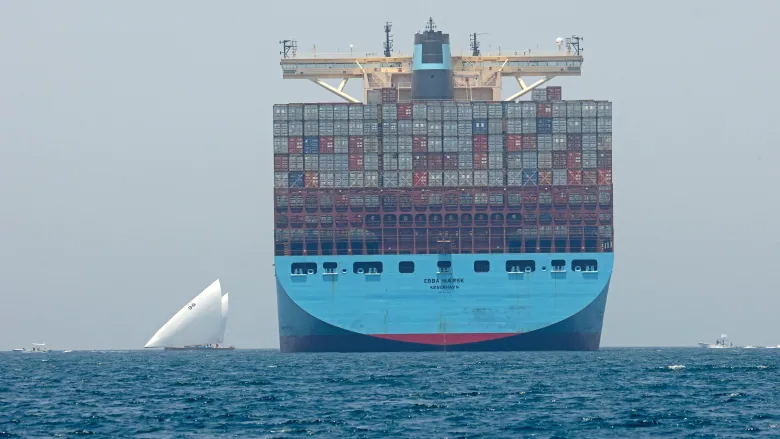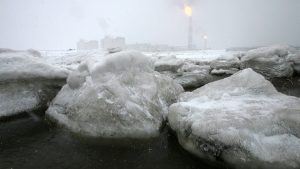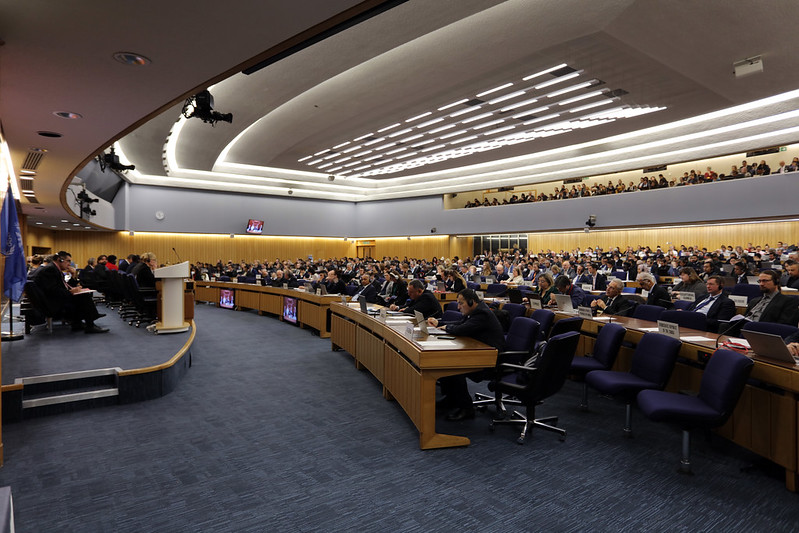Int’l Inuit org, small island states call for increased action on shipping impacts

With the wind down of the most recent International Maritime Organization (IMO) meeting on Friday, international Inuit and representatives of small island states are calling for more to be done to tackle the climate impacts of shipping.
The Inuit Circumpolar Council (ICC) and the Small Island Developing States (SIDS) are calling for the IMO’s greenhouse gas reduction targets to fall in line with the goal of the Paris climate agreement of 1.5 degrees C and for more concrete action to be taken on reducing black carbon emissions.
“This week ICC supported a proposal from SIDS to strengthen the IMO’s ambition in cutting climate warming emissions from shipping,” Lisa Koperqualuk, the ICC Canada president, said in a news release.
“The disappearance of Arctic sea ice is a critical issue for us. Sea ice is integral to Inuit culture, transportation, harvesting, and economy. Without it, and with it thinning, our way of life is disrupted in a profound way.”
Disproportionately impacted by climate change
John Kautoke from the Tonga IMO delegation said Indigenous peoples and small island states are disproportionately affected by climate impacts and needed urgent action.
“Fundamentally, 1.5 aligned policies will be the minimum we must do to ensure all countries and communities survive the climate crisis,” Kautoke said.
“Our collaboration with the Inuit Circumpolar Council has sought to merge our collective voices [… ]who are disproportionately impacted by the impacts of climate change, and the damaging effects of black carbon impacting the Arctic.”

Black carbon is made up of fine matter produced by incomplete combustion of carbon-based fuels. It can be emitted by everything from diesel engines to forest fires.
Black carbon and methane emissions are a serious concern for the world’s circumpolar countries because of this form of pollution’s role in warming the atmosphere. When black carbon is deposited on ice and snow, it absorbs heat, instead of reflecting heat from these surfaces, contributing to global warming.
The IMO’s Marine Environment Protection Committee meeting (MEPC79) took place in London Dec 12-16.
MEPC looks at pollution preparedness and response when it comes to shipping.
“Demanding but productive”
In his closing remarks at MEPC79, IMO Secretary General Kitack Lim characterized we the week as “demanding but productive.”
“It cannot be stressed enough how crucial it is that we keep the momentum and deliver an ambitious and fair, revised IMO GHG Strategy at MEPC 80 next year,” Lim said.
“The revised resolutions to encourage voluntary cooperation between the port and the shipping sectors to contribute to reducing [greenhouse gas emissions] from ships and to encourage Member States to develop and submit voluntary National Action Plans (NAPs) to address GHG emissions from ships that you have adopted will provide a great support to these effort.”

Clean Arctic Alliance (CAA), a coalition of 20 not-for-profit organizations working to promote more environmental protection for the Arctic, said it was encouraged by progress made at MEPC79 on greenhouse gas emissions.
“It seems likely that when the IMO’s greenhouse gas strategy is revised next year, it will include a solid commitment to decarbonising the shipping sector by 2050, and many member states have supported high ambition commitments involving deep cuts in emissions by 2030, which are crucial for slowing down the impact of climate change in the Arctic,” Sian Prior, the CAA’s lead advisor said in a news release.
“The IMO is making progress, but there is further to go; member states must use the time between now and its next meeting (ISWG, GHG14, 20 to 24 March 2023) to reflect on the science which points clearly to the need both for a halving of emissions from shipping by 2030 and full decarbonisation of the maritime sector as close as possible to 2040, rather than 2050.”
ICC represents the approximately 180,000 Inuit in Alaska, Canada, Greenland, and Chukotka, Russia.
It’s had provisional consultative status at the International Maritime Organization since 2021.
Write to Eilís Quinn at eilis.quinn(at)cbc.ca
Related stories from around the North:
Canada: Canadian Coast Guard winds up its 2022 Arctic season, Eye on the Arctic
Finland: Icebreaking season begins in Finland, Yle News
Iceland: New guideline launched for Arctic-specific risk assessment in shipping, Eye on the Arctic
Norway: Large areas of Arctic seabed damaged by trawlers, The Independent Barents Observer
Russia: Ice conditions on Northern Sea Route may pose navigation challenges this season, The Independent Barents Observer
United States: U.S. Coast Guard talks Arctic at recent summit, Eye on the Arctic



